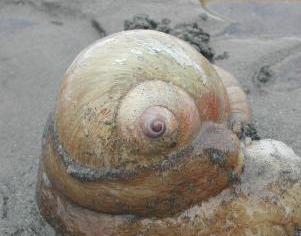So I've fallen behind, and still need to catch up the latest chilling news -- a women kicked off an airplane for breast-feeding. The buzz on this is already fading; In the time it has taken me to assemble my own thoughts, the airline has already apologized and a number of “nurse-ins” across the country are proceeding with little controversy.
But the message to me, and to women everywhere, is still sinking in. It’s a message about discretion and exposure – our social obligation to protect other people from seeing too much of our bodies. The woman kicked off the airplane (seated by the window with her husband on the aisle) was first asked to cover her child (and breast) with a blanket. When she refused (or failed), her family was ask to leave -- no small request for a family who has spent hours hauling baggage, stroller, carseat and gear through an airport's gates and crowds. Removal from a flight is a serious measure. A group of Muslim scholars removed from a flight out of Minneapolis yesterday have called for an investigation because of the humiliation (and presumably they needed to get where they were going, too).
But even among dedicated lactivists, the outrage and disappointment at the news never sounded like shock and awe. Because we’re not really that surprised. Even if we agree that it was wrong to kick the woman off the plane, we understand why it happened -- or at least we have the vocabulary to discuss it: was she "discreet" enough? Does it matter? We can debate it, but we knew this kind of thing could happen. As much as we rail against it, for years we’ve been hearing that same message about our bodies and babies: Be careful. Your breasts are dangerous, and feeding your child is risky.
And so, in its first apology, the airline expressed its support for breast-feeding women – if they are discreet. I’ll assume that, in light of national news headlines and a complaint filed with the Vermont Civil Rights Commission, even the first apology (later revised) was vetted by at least one team of lawyers, publicists and managers. All that expertise, all that consideration, came to the decision that it’s necessary to draw the line when a breast-feeding woman exposes too much of her body. In essence, they reiterated that women have a duty to protect society from an inadvertent view of our breasts.
I won’t be the first to point out how ironic this is, in an age of breast-intensive advertising and entertainment. If breasts are offensive, why are they everywhere? It’s not enough to blame the media – if mostly-bared breasts weren’t appealing to most consumers, they wouldn’t be plastered across billboards and beer commercials. Boobs are good. So then, we assume, the threat lies the prospect of “too much” breast – along the lines of local strip club ordinances that define "nudity" as including "the breasts below and including the areola." Therein lies the difference between an episode of BayWatch (appropriate) and the moment when I quietly shift my drowsy son off my breast and reach for my sweater (not). Is it all about the areola? Too bad for babies that the business end for milk is the same part considered the most taboo for display -- because it is usually not displayed (a tautology?) -- and therefore takes on a more private and forbidden association. As the argument goes, because breasts are obviously sexual, and sex is private, breast-feeding must be private.
But it’s really not the slight slip of nipple that instantly repulses an otherwise breast-appreciative public. In fact, it’s not the “breast” in the “breast-feeding” that's offensive – it’s the feeding. I think of this as the "don't ruin them for us!" argument: It’s the lactating woman, not the sexualized one, that must protect the world from her body. As observed by the characters on Friends, while watching a nursing mother, "It's such a beautiful and natural thing. . . / Yes, but there is a baby sucking on it!" Or comments like those of Ken Schram, a local news commentator who compared public breast-feeding to "urinating in the middle of the mall.” Boobs are pretty and sexy; Lactation is an intimate, even disgusting, bodily function.
In practice, I can tell you that discretion is no small challenge. It’s hard to nurse a busy and curious baby while maintaining the crucial inch of coverage that could change a peaceful and cuddly feeding into an offense, a confrontation, even a ruined cross-country trip. A slip of blanket or bra, a little distraction, and there we are exposed. Even with laws protecting public breastfeeding, many women feel too vulnerable to ever nurse in public. This is not simply out of modesty (I'd argue that anyone has the right to protect their body from view) but out of fear. What if we're next? Why risk it?
So we suffer a chilling affect. We hide ourselves in a safe “quiet” corner, cover up with a blanket, and spend hundreds of dollars on pumps, bottles and formula – all because we feel vulnerable. And what is our vulnerability? A nursing mother doesn’t shield her breasts out of fear that a sexual predator will notice and direct his violent attentions upon them. We’re really protecting our babies, out of fear that someone will disrupt the feeding. We protect the fragile eyes of the public from the uncomfortable truth of lactation. And in doing so, we complicitly agree that our bodies should be protected -- for someone else's prurient fantasy.
50-State Summary of Breastfeeding Laws
Militant Breastfeeding Cult
Friday, November 17, 2006
Subscribe to:
Post Comments (Atom)

1 comment:
Man, that guy makes urinating in public sound like a bad thing.
Post a Comment